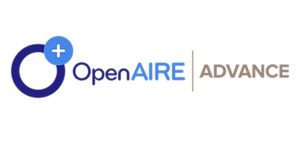 |
OpenAIRE-Advance project continues OpenAIRE’s mission to support mandates for open access to publications and scientific data in Europe. It supports open science initiatives, helps to implement the infrastructure, is a network of professional consultants to provide support and technical services. The project consolidates OpenAIRE’s achievements in the implementation of open science, and aims to become a trusted e-infrastructure integrated into the European open science cloud. “OpenAIRE-Advance aims to empower National Open Access Desks (NOADs) experts to act as focal points for national science data infrastructures to discuss open access and open science issues at national level. A strong emphasis is placed on developing scientific data management skills. The experts of the thematic working groups provide support for the implementation of the open science policy, capacity building in scientific data management and text and data mining, and legal advice. Development of new learning resources and educational events is encouraged. New modes of scholarly communication, such as cooperative open access publishing and next-generation repositories, are being analysed, with a goal of developing the foundational data of the scientific community. Project coordinator |
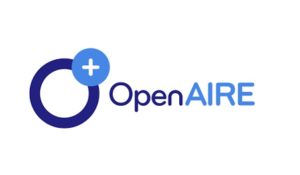 |
OpenAIRE2020 project is a large-scale initiative involving 50 partners from all EU countries. The aim of the initiative is to support and promote the availability and use of scientific publications and data. People working in research libraries, open access organisations, national e-infrastructure and data experts, IT professionals and researchers participate in the OpenAIRE2020 initiative. Kaunas University of Technology Library has an Open Access Consultation Centre, where the national open access coordinator provides advice on open access issues, organises information seminars, collects Horizon2020 (Horizontas2020) project results, and promotes the management of scientific data. The OpenAIRE platform has been created to achieve the project’s objective. It is a technical infrastructure that is essential for connecting and linking large-scale research collections across Europe. The project develops services to ensure interoperability of repository networks (by adopting common guidelines), easy upload to repositories, and a universal repository (Zenodo). Links: Project coordinator |
|
In cooperation with RCL, MRU and LMBA, the EU 7th framework programme project FOSTER (Open Science Training for European Research) was carried out: a training course for Lithuanian university researchers on the topic of open access, “Promoting open science among young scientists: challenges and opportunities”. FOSTER training has been carried out for young Lithuanian scientists and researchers. VIDEO RECORDINGS OF FOSTER SEMINARS Presentations from the “Open Access to Scientific Data” seminar on 29 October 2015 Seminar on “Open Access to Scientific Data”, 15 April 2015 Seminar on “Open Access to Scientific Data”, 31 March 2016 Videos of presentations at the seminar “Open Science for Young Researchers: Challenges and Opportunities” on 19 March 2015:
Implemented project was “Open Access through the Eyes of Young Scientists”, funded by the international organisation EIFL, a series of seminars (“Open Science: Why is it important to me?”, “Intellectual Property, Creative Licences and Open Access”, “Why is Open Access important to scientists?”) and a public discussion on “Open Access development in Lithuania” were organised. Participation in the EU 7 BP research project OpenAIREplus: Second generation European Research Open Access Infrastructure (continuation of the OpenAIRE project), seminar on “Legal Issues and Continuity of Open Access Infrastructures” (2013). Participation in the LMBA project “Let’s Promote Open Access in Lithuania”: created videos, conducted a survey, organised a scientific conference “Let’s open scientific knowledge to the world”. Participation in the EU 7 BP research project OpenAIRE (European Research Open Access Infrastructure). |
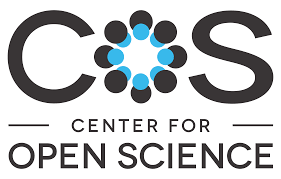 |
The Open Science Framework (OSF) is a tool that grants open access, and covers various aspects of the research cycle: formulating a research idea, designing a study, storing and analysing the data collected, and writing reports and scientific articles. The tool was created and is being developed by the Center for Open Science (COS). It is a non-profit organisation founded in 2013 that translates research into scholarly practices, builds and sustains scholarly communities, and develops research tools and infrastructures for managing and archiving research. |
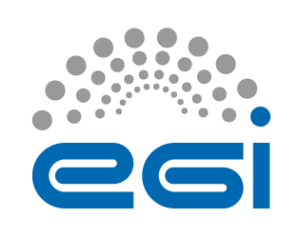 |
EGI is an international publicly funded e-infrastructure providing advanced computing and data analysis services for research and innovation. The infrastructure of EGI consists of hundreds of data centres and cloud service providers spread across Europe and the world. |
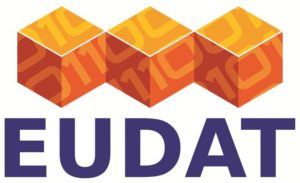 |
EUDAT data infrastructure is based on cooperation, and is one of the largest integrated infrastructures of data services and resources to support research in Europe. It consists of more than 20 European research organisation networks, data and computing centres. |
|
The mission of PRACE (Partnership for Advanced Computing in Europe) is to enable significant scientific discovery and engineering research in all fields of science, with the aim of improving Europe’s global competitiveness. PRACE fulfils this mission by offering world-class computing and data management resources, and services through peer-review processes. PRACE is also working to reinforce the development of high-performance computing infrastructure through various initiatives. |
 |
CESSDA (Consortium of European Social Science Data Archives) provides large-scale, integrated and sustainable data services for the social sciences. CESSDA brings together social science data archives in Europe to publicise the results of social science research and provide support for national and international social science research and collaboration. CESSDA ensures the quality of social science research and provides the conditions to re-use data in the future. By becoming a member of the CESSDA data repository network, data repositories demonstrate their credibility to researchers and national and international research funding bodies. CESSDA promotes continuous training and learning for service providers and the social science community, and provides training on the following topics: scientific data management, data discovery and re-use, digital preservation and archiving, CESSDA tools and services. CESSDA provides a modern, reliable infrastructure so that users can easily upload and access data. |
 |
EOSC-hub brings together a wide range of service providers to implement a one-stop shop where researchers and innovators can find, access, use and repurpose a wide range of resources for advanced data-driven research. This gives researchers greater access to services to support research and collaboration across disciplinary and geographical barriers. CESSDA provides a modern, reliable infrastructure so that users can easily upload and access data. |